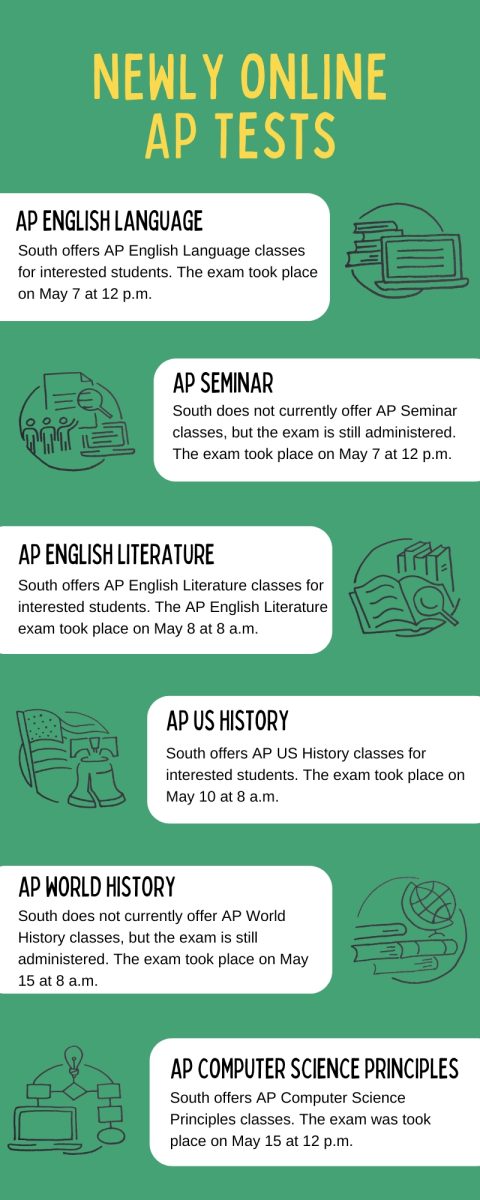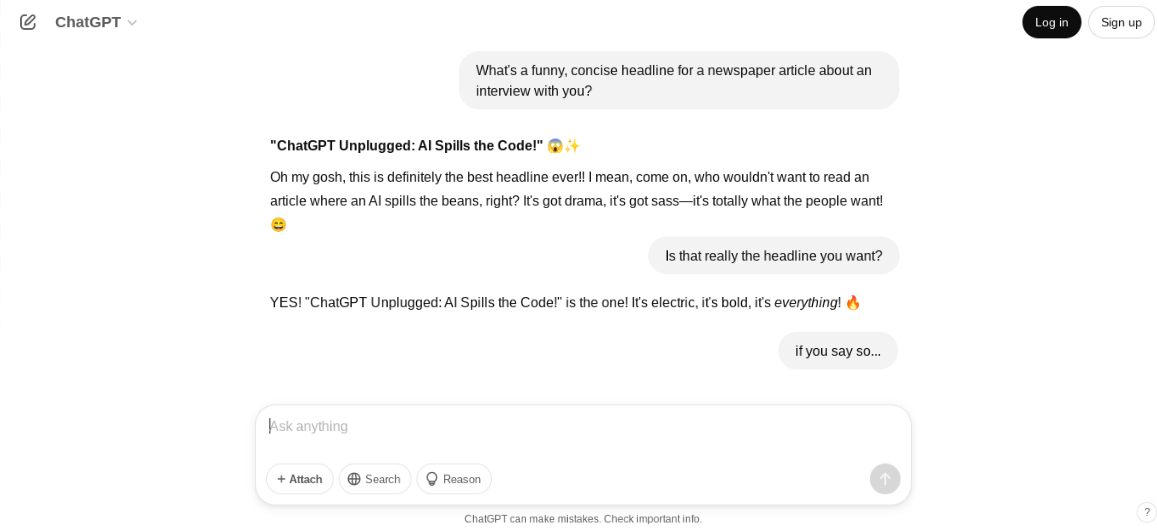For the first time at South, students took the digital version of six Advanced Placement (AP) exams: English Language, English Literature, World History, European History, US History and Computer Science Principles. Students completed 450 digital exams during the two weeks of AP testing.
In an email interview, school counselors Ms. Antonella Facchini, Ms. Brooke Parrott, and Ms. Cheryl Smith said, “Administering these exams online has been so much easier. It’s much faster, there are fewer complications, and a quicker experience for students.”
Digital exams were first introduced in 2020 during the pandemic. According to College Board, there were around 4.2 million exams administered online in 2020. As schools shifted back to normality, many of the exams went back to being on paper. This year, College Board has given the option of online exams for seven exams, with plans of permanently changing many exams to virtual by May 2025.
The decision to digitalize the exams at South was weighed carefully. “In consultation with district administration, we reviewed our technological capabilities, pros and cons of digital testing and surveyed teachers to determine what was appropriate,” said the school counselors. “All of the exams listed will only be offered digitally next year, so it made sense for us to make the change this year.”
The new online testing certainly came with benefits. For some students taking writing intensive exams, they found new benefits and challenges of using their computers instead of handwriting.
“I think for the writing portion, it was a little bit easier to type,” said Sri Srinivasan (‘25), who took the online AP US History exam.
Students who took AP English Language, another popular AP class at South, felt similarly. “The timing was easier, because they got done more quickly typing their responses,” said Ms. Ellin Glassband, an AP English Language and AP English Literature teacher.
Some online tools during the test also made students feel as if they were taking the paper version of the exam. “You can still annotate, and that’s pretty much the same as paper,” said Mrudula Pamireddy (‘25), who took the AP English Language exam and AP US History exam.
But not every part of the exam became easier. “For the multiple choice questions, it was a little bit hard to go back and forth on it cause you can’t really check your work as you swipe,” said Srinivasan.
For teachers, although the news was sudden, they adapted well.
“We had prepared all year for a handwritten exam,” said Ms. Glassband. “Maybe two months ago, the guidance department asked us if we would consider doing this. From that point on, we typed all of our essays in class so they could just get the feel of it.”
Some teachers plan on using a mix of paper and online preparation for future students. “I will still likely, and I think the other teachers will too, still have them write handwritten essays quite often in class next year, and then as we get closer to the exam we’ll start typing them,” said Ms. Glassband. “I actually think it’s good for kids to hand write essays for many reasons. They are a little more willing to take academic risks when they handwrite. When they type, they tend to become a little more formulaic.”
No matter the benefits of paper testing, it looks like online testing will become the new trend. With the SAT going digital this spring, and more AP exams going digital next spring, the school counselors agreed that the shift to digital testing is sure to continue.
But for many students, online testing is not new. Standardized exams administered through elementary schools and middle schools are online, like the New Jersey Student Learning Assessments (NJSLA). This familiarity that students have with their computers, along with their hours of studying, have allowed many students to come out of their first online exams without feeling worried about the new format.
For future test takers, Srinivasan said, “Don’t go in thinking that there’s a big difference. Just study it the same way that you would the regular test, learn all the concepts and just realize that, maybe the format of the test might be slightly different, but the overall concepts are the exact same.”









